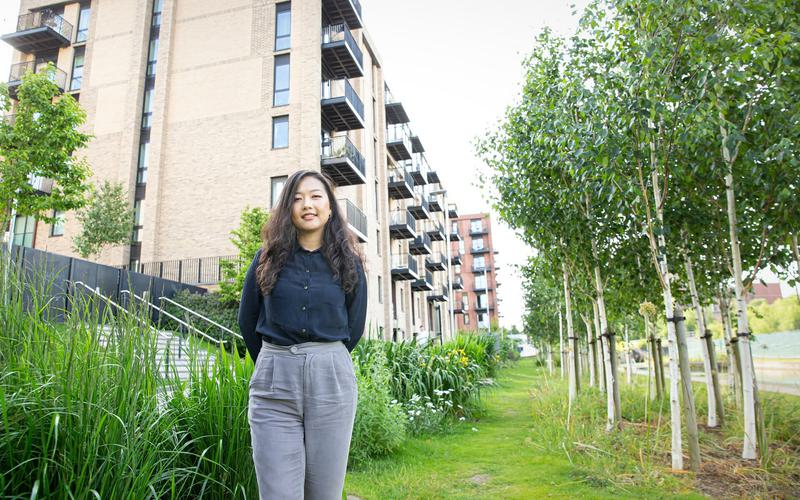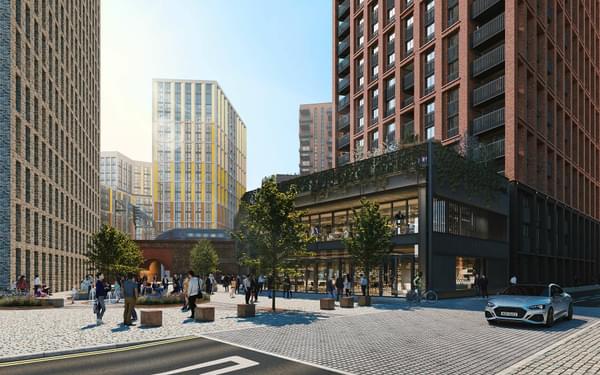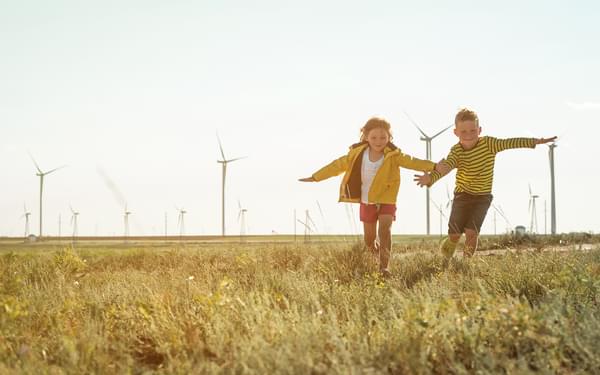Sustainable Masterplanning
Energy and sustainability consulting advice that informs site promotion and masterplan developments, and ultimately shapes great places for people.

Development proposals must align to the ever-evolving regulatory and planning framework. They must also demonstrate decarbonisation, climate adaptation and resilience, and social cohesion.
Robust standards and design guidance for future build-out are expected as part of a successful planning submission. It’s these types of commitment that will also attract ESG-focused investors and ensure future developments commit to being net zero, resource efficient, climate resilient and inclusive.
Working with strategic masterplan developers, local authorities, planners and architects, we take a holistic approach to sustainability.
We help key project stakeholders to create a vision, a development brief, and an over-arching energy and sustainability strategy that informs and guides the masterplan to achieve its carbon and sustainability targets.
On masterplan developments, we also act as Climate Change Co-ordinator, an increasingly important role within an environmental impact assessment (EIA).
Features and benefits of our service include:
- Creating a vision and development brief for strategic masterplans.
- Strategies for climate adaptation and climate resilience.
- Strategies to enhance nature and biodiversity.
- Approaches to inclusive design.
- Acting as Climate Change Co-ordinator.
- Whole lifecycle carbon assessment strategy.
Talking about climate resilience
Rebecca Lydon says it’s important for the built environment sector to understand the value that is in nature to create better places that are inherently climate resilient:
How our approach will help you
We set the foundations of a strategic sustainability brief around four pillars:
- EV charging strategies
- Promotion of active travel
- Inclusive design
- Local heat / power networks
- Renewable technologies and storage
- Waste management and circular economy
- Passive design
- Design for daylight and sunlight
- Environmental impact assessment
- Operational carbon management
- Reduction of embodied carbon in design
- Carbon removals and sequestration
- Biodiversity net gain
- Green and blue infrastructure
- Landscaping
- Sustainable urban drainage design
- Air quality
- Soundscapes
- Thermal comfort
- Wind microclimate
- Open spaces and recreation
- Safety
- Education and community facilities
Our track record
Our track record includes:
- Proposed 177ha development: We led the stakeholder workshops to shape the strategic sustainability brief for a proposed 1,950-home development in the Home Counties, which includes schools, commercial space and conservation areas. We advised the key partners – a leading university, and a major investment fund – to shape the brief which will ultimately inform the long-term masterplan development.
- Energy positive garden village masterplan, East Midlands: We are delivering proposals for a 5,000-home development which aims to exceed the sustainable design standards in the TPCA Garden Village principles. We are advising on on-site renewable energy generation and storage microgrid to overcome significant power constraints. As climate change coordinator, we are advising the masterplan developer on how to meet a number of key sustainability criteria.
- Masterplan development, south coast: On behalf of a south coast based development and planning consultancy, we are delivering the sustainability and energy strategy for a new masterplan site that will significantly enhance an existing area which includes both protected heathland and an expanding university campus. Assessing utilities provision, renewable energy options and delivering a framework for sustainability to inform a design code for the development, are key to our role.
- Carbon neutral housing programme, east London: We are shaping an energy and sustainability strategy for a London local authority across five pilot residential sites for their respective project design teams. The sustainability agenda and principles will then be adopted across their wider homes programme over the next 20 years. Our focus is on zero carbon measures, operational energy and lifecycle cost modelling, and ensuring the schemes meet Passivhaus standards.













